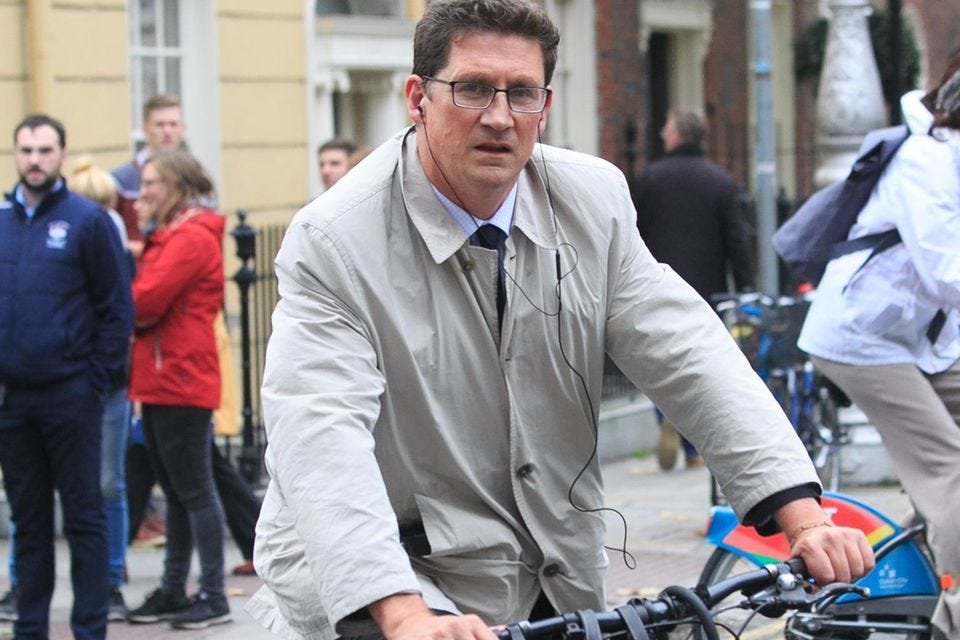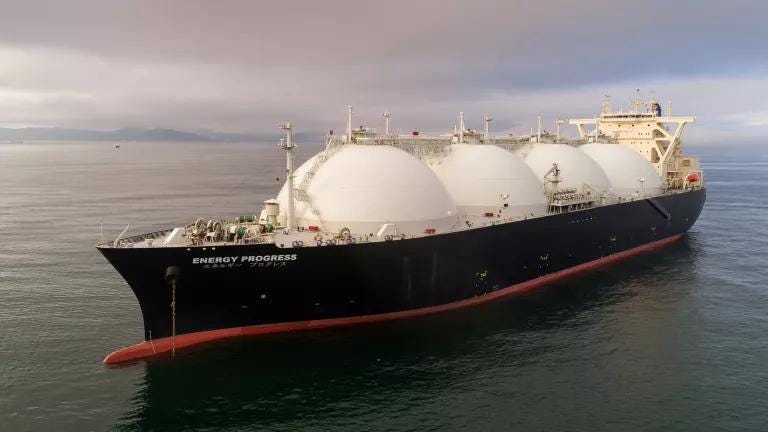Irish Fossil Fuels Bad! Foreign fossil fuels good?
State approval of overseas fossil fuels and disapproval of indigenous ones is hypocritical in the extreme
Last week Environment minister Eamon Ryan heralded the utilisation of British fossil fuels. Speaking outside Westminster the Green Party leader extolled a recent agreement signed with Britain, a country that recently suspended crucial green measures, that will see greater energy interconnection between both islands. The Memorandum of Understanding (MoU) “will increase renewable energy development, electricity interconnection and security of gas supply”. The oft fatigued minister exuberantly stated such an agreement was a “good day in Irish and British energy policy.” As was the case when the economically buoyant facade that was the Celtic Tiger came to a halt, the Brits are here to the rescue with yet another bailout, this time an energy bailout.
But is this a win for Irish energy policy?
How certain is the government that Britain will even share its vital energy sources if push comes to shove this winter and demand exceeds supply? The MoU states that both nations will “proportionally” share the burden in such an eventuality.
Unfortunately, due to years of neglect and inertia from successive governments, there is no proportionality between Ireland and Britain when it comes to energy. Ireland imports over 70 per cent of its gas, which provides over half our electricity, from Britain via the Moffat interconnector in Scotland.
The reliance and encouragement of British fossil fuels and a virulent opposition to such fuels domestically makes one wonder whether Ireland is truly committed to net-Zero or just virtue signalling on the world stage.
Ireland is almost wholly reliant on the U.K. to keep your lights on, kettle boiling, and phone charging. Following the recent coup in Niger, Nigeria blackmailed the junta with its stranglehold on that nation’s energy supply by cutting much-needed energy exports thus instigating blackouts. If Ireland were to schism from the U.K. today in the same way it did over 100 years ago Britain would hold the same grip. Not to engage in a torrent of Anglophobia, but as a sovereign independent state Ireland must prioritise energy independence or it risks being beholden to the whims of the latest trainsient occupant of No 10.
While Rishi Sunak has proven to be more trustworthy than his predecessors, ultimately Britain will, and should, prioritise its own people next winter.
Indeed, the fine print on the MoU states that this “is not an international agreement” and “does not create any legally binding obligations.”
So it appears that the Irish State is banking on a flimsy ‘non-binding’ commitment from Britain to keep your family warm this winter.
How this can be characterised as a ‘good day for Irish energy policy’ is beyond this writer.
Aside from the humiliating ordeal of a minister from a former dominion begging the U.K. for vital resources, the hypocrisy of asking for the same fossil fuels that that same minister eschews here at home was not lost on many.
According to Minister Ryan, “The UK’s gas supply comes mainly from indigenous supplies, via pipeline from Norway and through imports of liquified natural gas” (my emphasis).
Last Friday An Bord Plenála refused permission for an LNG terminal on the Shannon Estuary in Co Kerry. The plant would have been constructed by the Irish unit of New Fortress Energy. A 600MW power plant on the same site was also denied permission pending a review on Irish energy security; here’s the review: IT AINT SECURE!
Instead of decrying this abject derogation of duty to Irish energy users Minister Ryan praised the decision seemingly content to further Ireland’s reliance on fossil fuels from Britain.
The Mayor of Kerry Jim Finucane lambasted the impotent South Dublin minister calling on him to resign and requesting his party, Fine Gael, to pull the plug on coalition with the Greens who he says are “destructive to rural Ireland.”
Despite the prevailing narrative that the energy crisis is over with domestic energy suppliers finally announcing cuts, Irish electricity prices still remain one of the highest in Europe. In Dublin electricity prices are 179 per cent above the European average; retail gas prices are 50 per cent above the EU average.
In the aftermath of the war in Ukraine nations across Europe scrambled to ensure their citizens did not freeze or face astronomical energy bills. Germany, for instance, a nation which relied heavily on Russian energy before the war, leased a floating LNG terminal and is planning on constructing a permanent one.
A liquefied natural gas (LNG) tanker in the Sea of Japan near Nakhodka, Russia
Credit: Vladimir Serebryanskiy/Dreamstime
The German Federation also announced the reopening of its coal fired plants. With such decisions, Germany seems to understand that being a net importer of energy “from areas of the world that are geopolitically volatile contributes to price instability and vulnerbaility” and “new domestic sources of oil and gas would ease this pressure.” Don’t take it from me. Those were the words of Eamon Ryan in 2007.
Yet now, during an energy crisis, he is more than happy to admonish attempts to set up Irish LNG terminals and explore Ireland’s natural resources in his refusal to grant an exploration license to Barryroe to drill for oil off Ireland’s south-west coast, despite importing both energy sources from Britain.
Ireland’s energy policy mirrors its abortion policy following the X Case. Exporting abortion to the U.K. led people to question whether the Irish State was really opposed to the practice or just not willing to countenance it here at home. In the same vein, the reliance and encouragement of British fossil fuels and a virulent opposition to such fuels domestically makes one wonder whether Ireland is truly committed to net-Zero or just virtue signalling on the world stage.
I end with another quotation from our one-time wise now hypocritical minister Eamon Ryan:
“Ireland’s oil and gas is a resource of the people. I want to ensure that our waters are fully explored and also that we got a proper return to the State.”




